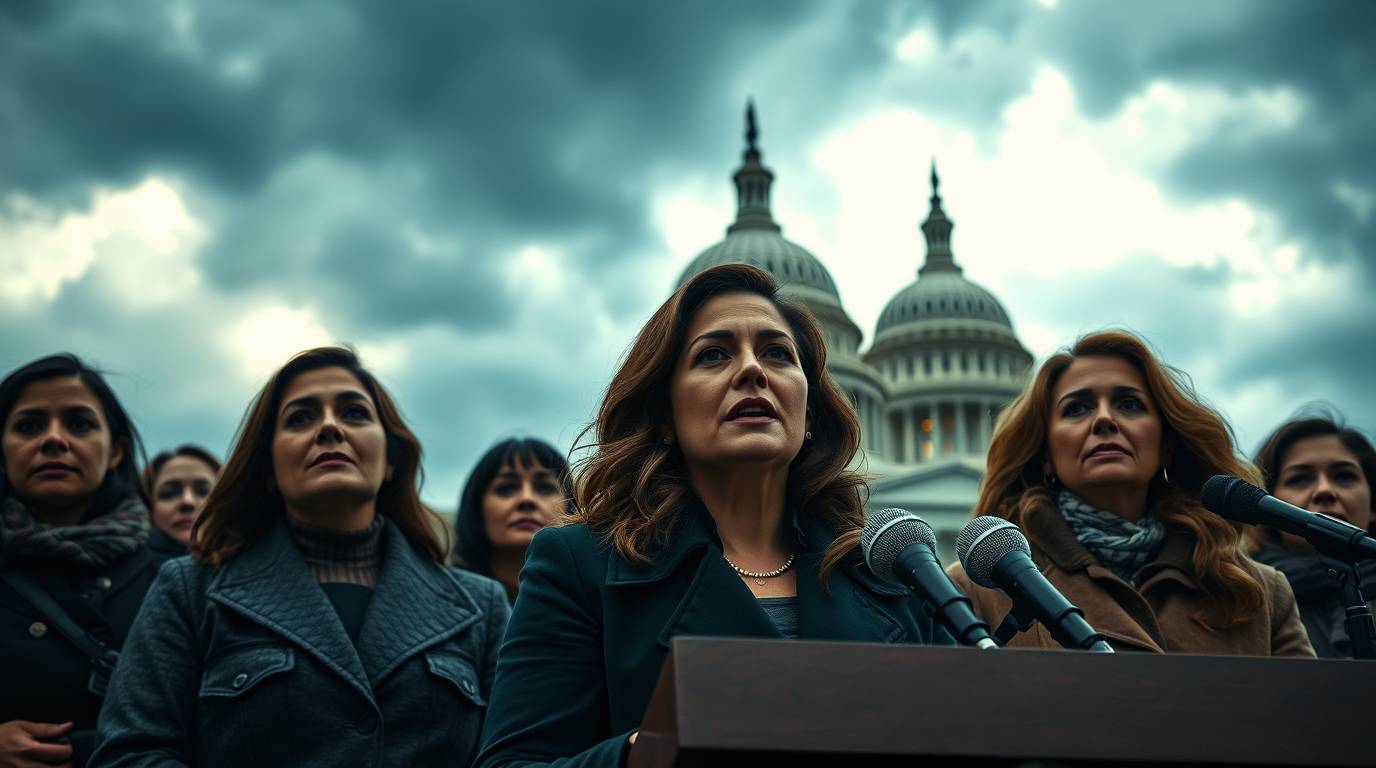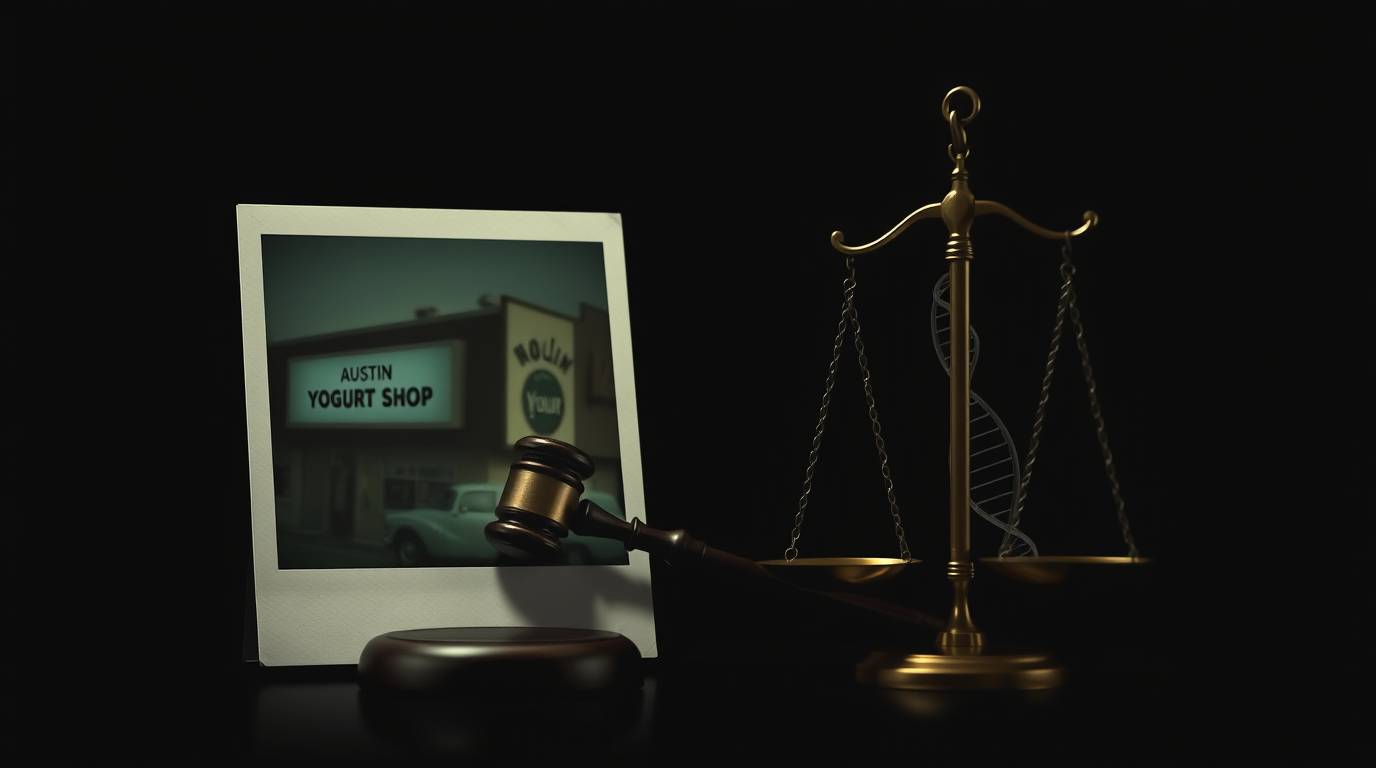Epstein Victims Speak Out: Press Conference Asks Transparency
Today, Epstein victims stood alongside bipartisan lawmakers in a powerful Capitol Hill press conference, demanding full transparency from the Justice Department. These brave survivors, some speaking publicly for the first time, shared harrowing accounts of abuse and called for the immediate release of all documents related to Jeffrey Epstein and Ghislaine Maxwell. Their unwavering courage highlights a critical moment in the ongoing fight for justice and accountability. This event, organized by Representatives Thomas Massie (R-Kentucky) and Ro Khanna (D-California), underscores a rare bipartisan effort to uncover the truth behind one of the most notorious sex trafficking cases in modern history.
Why Epstein Victims Are Speaking Out
For decades, Epstein survivors faced silence, intimidation, and systemic failure. However, their resolve has only strengthened over time. Many victims, like Anouska De Georgiou, emphasized that “the days of sweeping this under the rug are over.” Their primary goal is to ensure that such atrocities never happen again and to hold every enabler accountable. Moreover, they seek healing and closure through transparency, as many still struggle with the trauma inflicted by Epstein and his associates.
Key Moments from the Epstein Victims Press Conference
Heart-Wrenching Survivor testimonies
During the press conference, ten survivors shared their stories, each revealing the profound impact of Epstein’s abuse. For instance, Marina Lacerda, who spoke publicly for the first time, described how she was recruited at age 14 and forced to drop out of school to serve Epstein. Similarly, Haley Robson recounted being coerced into bringing other girls to Epstein after her own abuse began at 16. These testimonies painted a chilling picture of manipulation and exploitation that spanned years.
Bipartisan Lawmakers Unite for Justice
Representatives Massie and Khanna led the event, emphasizing that protecting children should transcend political divides. Massie urged colleagues to consider, “What if this was your sister? What if this was your daughter?” Khanna added, “Today we stand with survivors, we stand against big money, we stand to protect America’s children.” Their collaboration demonstrates a shared commitment to justice and transparency.
Demands for Full Disclosure
Survivors and lawmakers alike criticized the recent House Oversight Committee release of 33,000 pages of documents, noting that 97% were already public. They called for the passage of the Epstein Files Transparency Act, which would require the Justice Department to release all records, including flight logs, immunity deals, and internal communications, within 30 days. This act would prevent documents from being withheld due to embarrassment or political sensitivity.
The Political Battle Over Epstein Files
Discharge Petition Gains Momentum
A discharge petition, led by Massie and Khanna, aims to force a House vote on the transparency bill. So far, four Republicans—Massie, Marjorie Taylor Greene, Nancy Mace, and Lauren Boebert—have joined Democrats in supporting this effort. If all 212 Democrats sign, only two more Republicans are needed to reach the required 218 votes. However, House Speaker Mike Johnson opposes the petition, arguing it does not adequately protect victims.
White House and DOJ Resistance
The Trump administration has backtracked on its initial promise to release the files, citing concerns over victim privacy and national security. This reversal has frustrated survivors and lawmakers, who view it as a failure to prioritize justice. Victims like Anouska De Georgiou directly appealed to President Trump, saying, “You have so much influence and power in this situation. Please use that influence and power to help us”.
What the Epstein Files Reveal… and What They Don’t
The recently released documents include body cam footage, victim interviews, and court filings, but much of the information is redacted or already public. For example, one audio recording features an Epstein employee noting that “there were a lot of girls that were very, very young” visiting Epstein’s home. However, critical details about powerful associates and clients remain hidden, fueling speculation and conspiracy theories.
Key Gaps in the Released Documents
- Redacted Pages: Many documents are heavily redacted, obscuring names and critical details.
- Lack of New Information: Most materials date back to 2005–2017 and were previously released via public records requests.
- No Client List: The files do not include a comprehensive list of Epstein’s associates or clients, a key demand from survivors.
Survivors’ Threats to Release Their Own List
Frustrated by the government’s secrecy, survivors revealed they are compiling their own list of abusers within Epstein’s circle. Lisa Phillips, a survivor, stated, “We know the names. Many of us were abused by them.” However, they hesitate to release it due to fears of legal retaliation and inadequate protection. This move highlights their desperation for accountability in the face of institutional failure.
The Role of Ghislaine Maxwell
Survivors also expressed outrage over Ghislaine Maxwell’s transfer to a lower-security prison, which they called a “holiday camp.” They warned against any potential pardon, emphasizing that it would undermine their sacrifices and mock their suffering. Anouska De Georgiou stressed, “If Ghislaine Maxwell were pardoned, it would make a mockery of mine and all survivors’ suffering”.
Conclusion: The Fight for Justice Continues
The press conference marks a pivotal moment in the long battle for justice for Epstein victims. Their courage has ignited a bipartisan push for transparency, challenging lawmakers to prioritize humanity over politics. However, the road ahead remains fraught with obstacles, from political resistance to institutional secrecy. As survivors declared, “We are not going away, and we are not going to be quiet.” It is now up to Congress and the administration to heed their call and release the truth—for the survivors, for the public, and for future generations. Join the demand for transparency by contacting your representatives and supporting the Epstein Files Transparency Act..
FAQs About the Epstein Victims Press Conference
Why are Epstein victims demanding the release of the files?
Epstein victims believe full transparency is essential for accountability and healing. The files may reveal the extent of Epstein’s network and those who enabled his crimes, ensuring such abuses never happen again .
What is the Epstein Files Transparency Act?
This bipartisan bill, co-sponsored by Reps. Massie and Khanna, requires the Justice Department to release all documents related to Epstein and Ghislaine Maxwell within 30 days, excluding victims’ personal information. It forbids withholding files due to embarrassment or political sensitivity .
How many Republicans support the discharge petition?
As of now, four Republicans—Thomas Massie, Marjorie Taylor Greene, Nancy Mace, and Lauren Boebert—have signed the petition. If all Democrats sign, only two more Republicans are needed to force a House vote .
Did the recently released files include new information?
No, approximately 97% of the 33,000 pages released by the House Oversight Committee were already public. Many documents were redacted or dated back to earlier investigations .
What are survivors’ concerns about Ghislaine Maxwell?
Survivors fear that Maxwell’s transfer to a lower-security prison could lead to her early release or pardon. They argue that she must serve her full sentence to acknowledge her role in the abuse.
👉Please visit for more → Click here!













